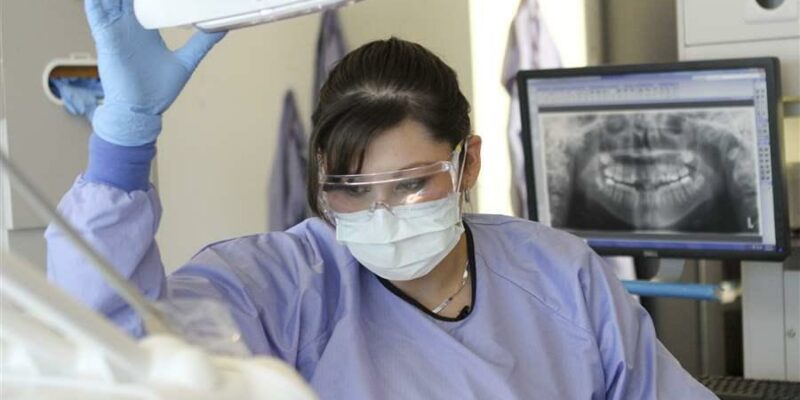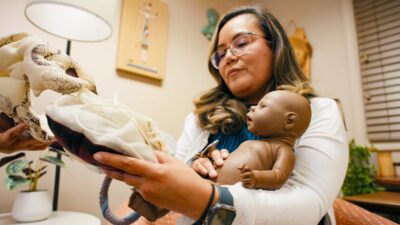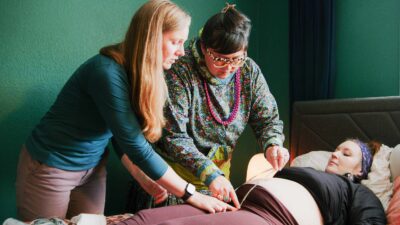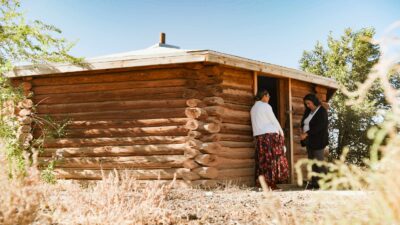Rochelle Ferry understands the trauma associated with dental pain all too well. As a 16-year-old, she lost her front tooth playing red rover at a church function, an experience she describes as “horrific.” Previously, she was proud of her teeth, but after losing her front tooth, suddenly she couldn’t bring herself to smile and lost confidence.
Eventually, Roz was able to get a flipper and through that experience, realized that a lot of the girls her age who didn’t smile were embarrassed by their teeth due to cavities, crooked teeth and other ailments, a common feeling in rural Alaska.
It was then that Roz decided to pursue a career in dentistry. She became a dental assistant in high school and graduated from college as a certified dental assistant. Roz felt like if she could help others with their smiles, it might help to heal her.
But Roz discovered that she had a desire to do even more.
That’s when she learned about a small village in Norton Sound where a local provider, Dr. Mark Kelso, was one of the first dentists to embrace dental therapy. An opportunity arose, and a month later she left for two years of very intensive training in New Zealand. Following graduation, she moved back to Alaska.
Roz found fulfillment practicing dental therapy in rural Alaska traveling weekly to meet the needs of underserved communities in the area.
Later, because of family obligations, she needed a position that required less travel. Today, she is working for the Port Gamble S’Klallam tribe and practicing in a small clinic with a local dentist, two dental assistants and one hygienist.
For the team, the dental therapist is responsible for all of the community outreach – spending time at the elder center, playing with children in schools and meeting people in their homes. Roz believes that when you connect with people outside the clinic environment, you can build a whole different relationship. When they’re able to recognize you before coming into the clinic, it removes the fear often associated with the in-office experience.
The dentist’s time is spent performing higher level procedures while Roz is able to take on the majority of routine exams and fillings.
According to Roz, the most rewarding part of being a dental therapist is, in its simplest form, being able to help people, meet people where they are and personalize a treatment plan.
Roz has been a dental therapist for over 10 years and is grateful for what it has meant for her family’s financial security as well as for her personal and professional fulfillment.
“For Want of a Dentist: The Rise of the Dental Therapy Movement in Tribal Nations and the U.S., Lessons from the W.K. Kellogg Foundation”
February is National Children’s Dental Health Month and WKKF is featuring several practicing, community dental therapists and sharing how they are creating jobs, reaching underserved communities, providing cost-effective care, increasing access through innovation and making a difference. Follow everychildthrives.com for updates and check out WKKF’s dental therapy e-resource guide for information.








Comments